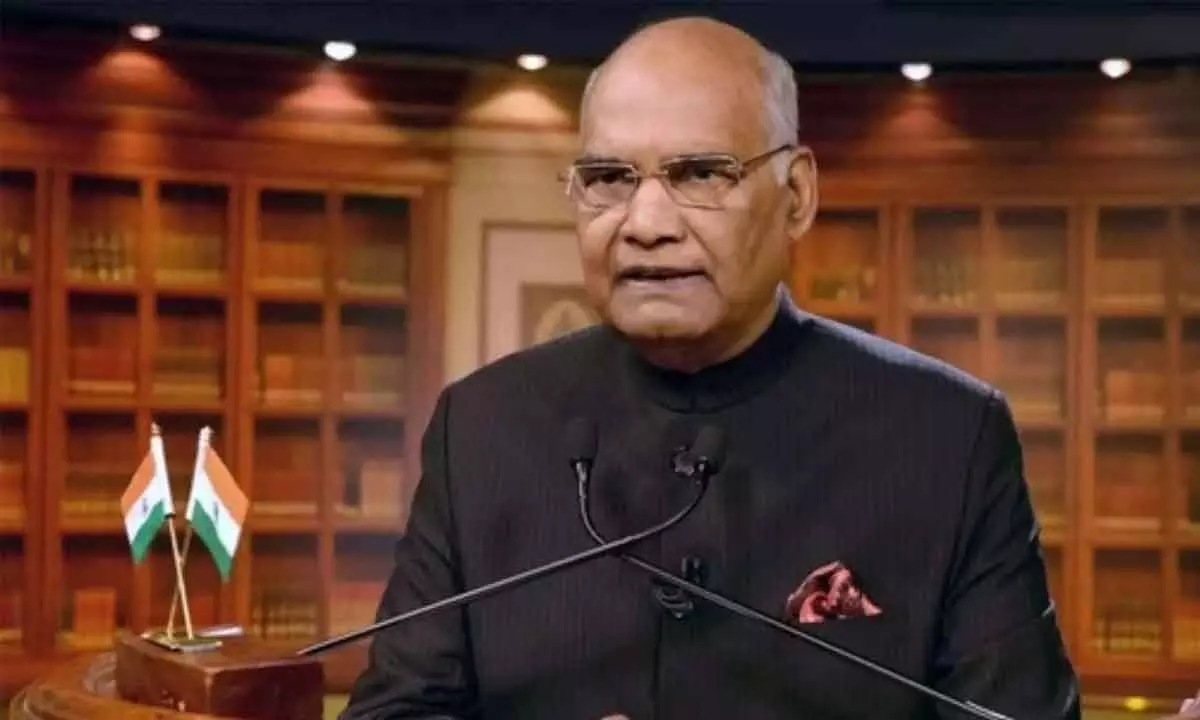Live
- Cops crack sensational NH-44 robbery
- Train services disrupted over technical glitch at platform 3
- KCR has public support, claim Ponnala, Vinay Bhaskar
- Attada’s novel on Srikakulam struggle lauded
- DGP inaugurates Bharosa centre
- Sand-laden heavy lorries damage roads
- Naini describes CM as real hero; says he will deliver a blockbuster
- PM awarded Kuwait's highest honour
- TTD’s ambitious path with 'Vision 2047' for Tirumala future
- After temple, ASI discovers 150-yr-old stepwell in Sambhal
Just In
Committee Led By Former President Kovind To Explore 'One Nation, One Election' Concept


- Get insights into the establishment of a committee headed by ex-President Ram Nath Kovind to delve into the feasibility of the "one nation, one election" proposal.
- Discover the context, the government's intentions, and the challenges associated with synchronizing Lok Sabha and state assembly elections in India.
The Centre has reportedly established a committee led by former President Ram Nath Kovind to investigate the feasibility of the highly-discussed "one nation, one election" concept. This development follows the government's summoning of a special parliamentary session from September 18 to 22, the agenda for which remains undisclosed.
Over time, Prime Minister Narendra Modi has fervently advocated for synchronized Lok Sabha (national) and state assembly elections, and appointing Kovind to delve into the matter underscores the government's commitment as a slew of elections draw near.
Kovind had previously echoed Modi's stance, expressing support for the idea shortly after assuming the presidency in 2017. He articulated, "Frequent elections not only impose a significant burden on human resources but also impede the development process due to the promulgation of the model code of conduct," during an address to Parliament in 2018.
As the Modi government approaches the conclusion of its second term, there is a prevailing sentiment among its top leadership that it must act decisively on this issue, after years of deliberation.
With the ruling BJP under Modi often animated by substantial themes and ambitious ideas to garner popular support, this issue is also deemed politically advantageous for the party and may catch the opposition off-guard, according to party leaders.
Assembly elections are slated for five states — Mizoram, Madhya Pradesh, Chhattisgarh, Telangana, and Rajasthan — in November-December, followed by the Lok Sabha elections in May-June the following year. Nevertheless, recent government actions have raised the possibility of advancing both the general elections and some state polls, which are scheduled to coincide with or occur after the Lok Sabha contest.
While the exact agenda for the special parliamentary session remains uncertain, speculations include the dissolution of the current Parliament and the announcement of early Lok Sabha elections. However, the decision to dissolve the Parliament can be made through a cabinet decision, rendering a special parliamentary sitting unnecessary for this purpose. It is possible that the government may use the session to showcase its accomplishments over the past five years and explain the rationale behind holding snap elections alongside state elections scheduled for this year.
It's worth noting that the concept of "one nation, one election" would require a constitutional amendment and subsequent approval by state assemblies. Although this concept has been discussed in the past, it is a complex matter that would necessitate extensive legal and political deliberation.

© 2024 Hyderabad Media House Limited/The Hans India. All rights reserved. Powered by hocalwire.com






